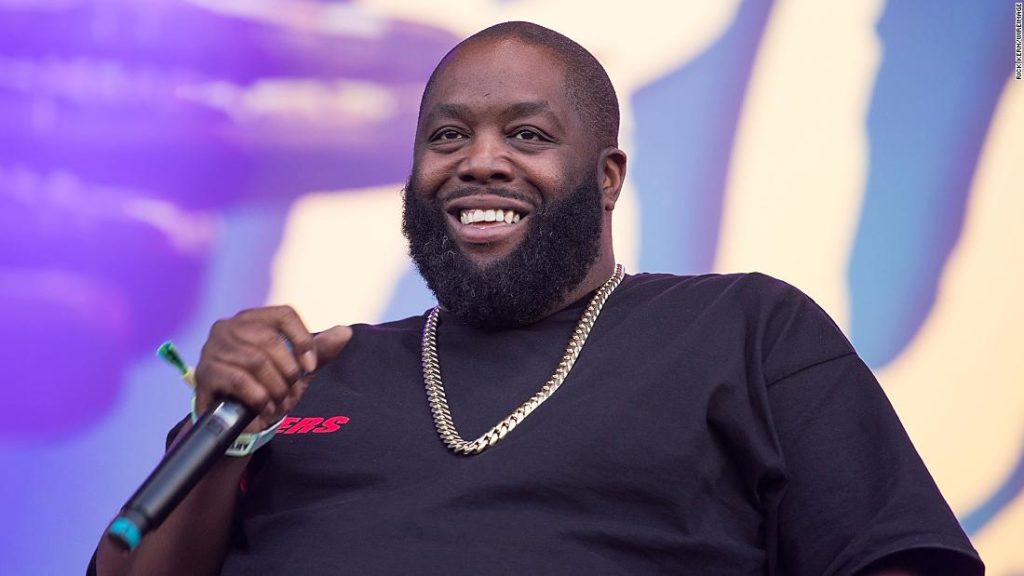“Even though I didn’t understand stocks and I sold my stocks like a dummy at 18, what they did teach us financially was to invest in the future,” Render said. “Getting young people into stocks at 12 and 13, versus 23 and 33, helps people understand, ‘I should put aside money to grow for me over the next 10, 15, 20 years.'”
Now, the 45-year-old rapper and activist has a new project, with bigger ambitions and even bigger risks. Render, along with longtime friend Ryan Glover, is responding to a dire need in communities across the United States for a modern, Black- and Latinx-owned digital banking platform.
“This is a platform for the young person trying to get their piece of an American Dream,” Render said in an interview last month.
The financial services company, called Greenwood, is expected to launch later this year — delayed because of Covid-19 and overwhelming early interest in the project, the company says. It had initially planned on launching this month.
Why banking?
That racist history partly explains the need, now, for minority-owned lending institutions. Since 2001, the number of Black banks has shrunk by approximately half. The FDIC notes minority-owned banks lend to communities that have been on shaky financial ground for a host of reasons, not the least of which was the 2008 housing collapse that put particular stress on people of color. Those underlying challenges led to the failure of many minority-owned lending institutions.
The typical White American family had eight times the wealth of the average Black American family, and five times the wealth of the typical Hispanic family, according to the Federal Reserve’s 2019 Survey of Consumer Finances.
“I want the worker class to understand this is a platform that … will not gouge you,” Render says of Greenwood.
Rolling the dice
Render says the swift progress has been a surprise for Greenwood’s leadership team. “In two months, we’re where we thought we’d be in two years,” Render told CNN Business in December.
But that advantage could also be a liability. The minority-owned banks that Greenwood plans to partner with are smaller institutions with limited resources, said David Tapscott, the company’s chief marketing officer. If Greenwood has to work with mainstream banks that aren’t minority-owned, it risks undermining its mission.
Want to be like Mike
Both Render and Glover acknowledge the reason so many people are excited about Greenwood is, in part, because they know and trust Killer Mike, who has emerged in recent years as the unofficial steward of the Black financial empowerment movement.
He’s not a banker by trade, but the importance of financial literacy and the reality of income equality are never far from his music and activism. He was an outspoken supporter of Bernie Sanders, largely because of the senator’s message of leveling the financial playing field embrace of universal health care.
“I’m honored to be trusted, but I don’t take the responsibility lightly,” Render said. “I’m very much a reluctant leader in our community, but believe that’s what we need.”
Render says he’s determined not to join the ranks of others who have tried and failed to keep minority-owned banks alive.
“I don’t know why so many of them have failed, “Render said. “If we lose all you guys, we’ve truly lost the last vestiges of hope we have economically in making this a fair game.”
Correction: A previous version of this article misconstrued the FDIC’s statement about minority-owned banks. The story has been updated to reflect that many of those institutions have failed because of a host of underlying problems in the communities they serve.
You may also like
-
Afghanistan: Civilian casualties hit record high amid US withdrawal, UN says
-
How Taiwan is trying to defend against a cyber ‘World War III’
-
Pandemic travel news this week: Quarantine escapes and airplane disguises
-
Why would anyone trust Brexit Britain again?
-
Black fungus: A second crisis is killing survivors of India’s worst Covid wave

